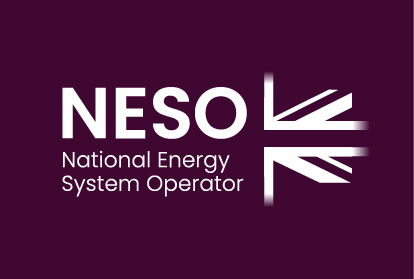Project Summary
As rural industries decarbonise, they may find this transition challenging. This is where Network operators can provide valuable support to help them make the right decisions. Rural networks are often characterised by radial circuits with limited capacity. These circuits are harder and more expensive to reinforce. RIDES will develop a tool to show rural industries their potential decarbonisation pathways. It will also help network companies to understand what their future investments needs will be, allowing efficient, coordinated investment by network
companies and their customers. RIDES will smooth and accelerate the path to net zero for rural industry
Innovation Justification
RIDES will design and develop an innovative digital tool that enables rural industrial customers to identify possible pathways to decarbonise their sites and understand the network impact of these decarbonisation pathways. The tool will also provide industrial customers with insights on how to leverage smart solutions e.g. flexible connections, onsite generation/storage, and industrial clustering, to minimise network impact.
Previous innovation projects e.g. Inform and HV Auto Quote have looked at automated connections and budget estimators to support customers. However, they do not provide customers with much needed insights on possible decarbonisation options and the impact these options have on the network. Indus explored how industrial clustering could minimise network impact. However, it has not considered the challenges faced by rural industries, who are critical to local communities and risk being left behind in the energy transition.
RIDES will support the efficient deployment of network and industrial infrastructure required to decarbonise rural industrial sites. DNOs will provide information to industrial sites enabling them to make evidence-based decisions around their optimal decarbonisation pathway. In return DNOs and GDNs will gain visibility of the current and future energy needs of customers enabling them to more efficiently plan their respective networks and reducing costs. RIDES proposes to go beyond identifying different technologies needed to decarbonise industrials. It
will also identify how those technologies can be complemented by smart connection solutions e.g. seasonal flexible connections, phased connections, clustering opportunities, on-site generation and storage, etc that minimise network impact.
RIDES requires a range of datasets. The uncertainty around data availability and quality during Discovery may pose challenges for developing a digital tool that provides accurate decarbonisation insights (TRL 3 and IRL 2). The commercial readiness of digital tools that support the identification and assessment of sitespecific decarbonisation pathways is low (CRL 3). Therefore, the uncertainty in being able to gather robust data and develop accurate insights for rural industrials requires further exploration through SIF before networks could confidently invest in developing the RIDES tool.
SIF is the right funding mechanism as the phased structure allows networks to manage the associated uncertainties at minimal risk to energy consumer bills. To avoid duplication, the project will determine whether the functionality of RIDES can be developed in existing tools or whether a new tool is needed. Following a Beta trial, the RIDES tool will have a CRL, TRL and IRL of approximately 8 and be ready for GB-wide rollout.
https://apply-for-innovation-funding.service.gov.uk/application/10143030/form/question/44109/forminput/123465/file/767264/download
Impacts and Benefits
Financial - future reductions in the cost of operating the network
Forecasts of future load on networks depend on a range of variables from economics, technology and societal trends, legislation and international markets. Any method which reduced the sources of error on these forecasts carries value. RIDES will reduce the uncertainty associated of the decarbonisation choices that industrial customers will make.
Accurate forecasting translates into driving benefits through:
1. Informed deferment of capital investments
2. Right sizing of reinforcements making "build once" a more realistic option
3. Greater certainty of forecast use of flexibility services
4. Longer deferment because of greater certainty
Given that SSEN Distribution total capital spend in ED2 is approaching £2bn, improved forecasting can create significant benefits. This carries financial benefits for electricity networks and industrial customers alike.
When assessing benefits, the counterfactual we will use will be the cost of uncoordinated build out of the network. This will be measured against the cost of informed network development dependant on the options available, their cost and spread of their likely adoption by rural sites.
In addition, deferment can allow the work programme to be smoothed, creating supply chain savings, in the preparation of our ED2 submission supply chain stakeholder indicated anecdotally that this could be up to 10%.
Financial - cost savings per annum on energy bills for consumers
Industrial sites that fully understand their options for decarbonising will be able to make informed decisions about the degree to which they can change the timing of their operations to take advantage of time of use tariffs or to offer flexibility services such as demand turn down and therefore will be able to reduce their bills.
Savings in the segment will be calculated against a counterfactual of not adopting any flexible behaviour.
Environmental - carbon reduction -- direct CO2 savings per annum
The RIDES tool will facilitate decarbonisation of industrial sites. On the assumption that this will happen eventually, the carbon benefits will be measured as the carbon saved by accelerating against a counterfactual of not providing assistance to these industries.
New to market product and processes
RIDES will deliver a first of its kind software tool and data sharing framework that will enable rural industrial sites to plan their decarbonisation journey economically and give visibility to network companies of future demand profiles in an energy system with reducing natural gas demand.




